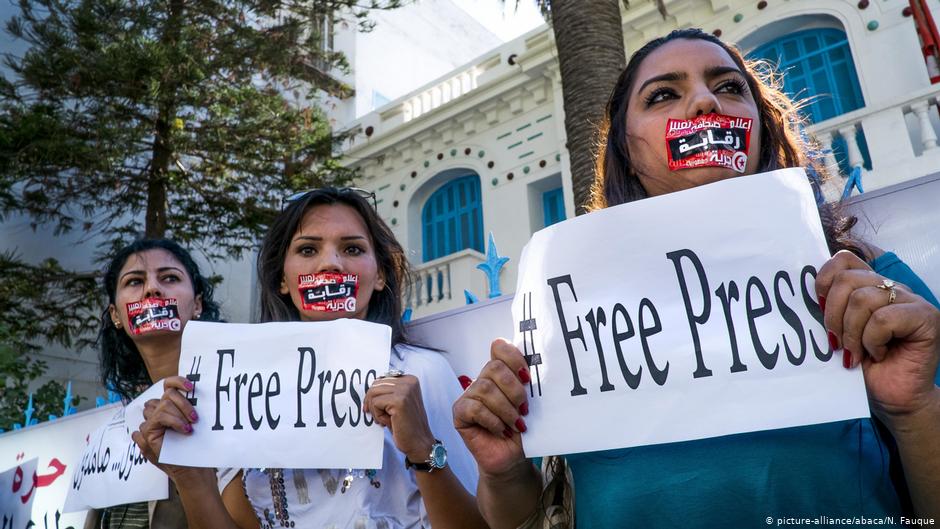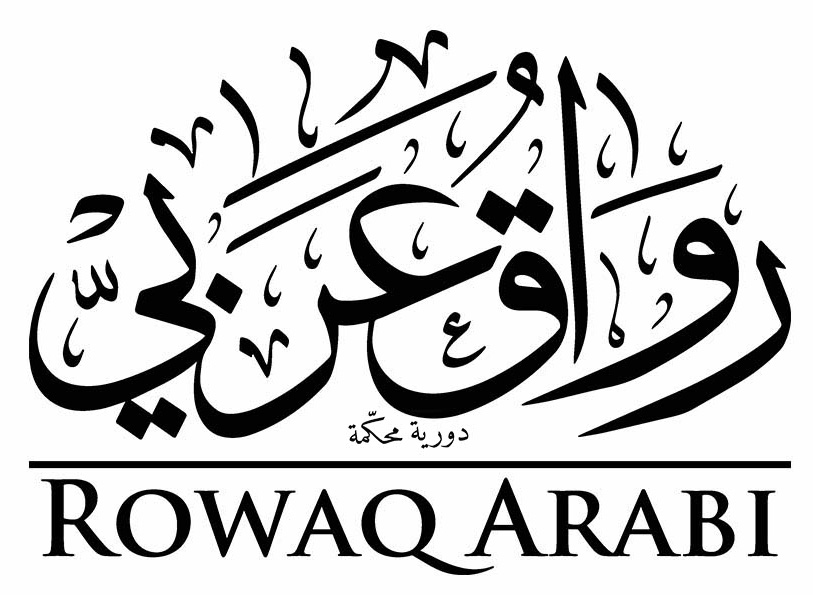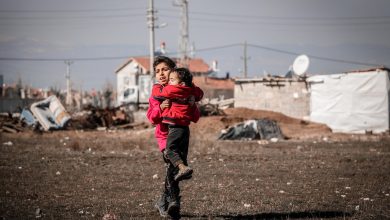Views: The Role of New Independent Media in the Arab Region, its Nature and the Challenges it Faces

With the unfolding of many conflicts and wars, the rise of authoritarianism and far-right populism, and the deteriorating conditions stemming from refugee and migrant crises, the world is undergoing difficult transformations. It is no secret that many state governments invest in media, publicity, and the publication of fake news in a quest to monopolize technology and to use –or misuse – social media platforms in the interests of their policies. It is a war of information and publicity on a global scale in which all are implicated, in one way or another. Threats against press freedoms and growing restrictions on access to information are becoming problematic issues, now more than ever.
It is true that these challenges are being faced by news outlets across the world, whether they be traditional and established outlets or new and independent outlets. However, the Arab region is uniquely situated in a state of crisis and hardship characterized by acute polarization on political and sectarian lines. As such, it becomes difficult to speak of robust media for the people outside of the scope of political funding, which constitutes the strongest pillar of media and press in the Arab region.
There is no doubt regarding the deterioration – on a global level – of the general environment through which journalists conduct their work. We are living in an era of fear and anxiety, under conditions of increasingly hostile incitement against media professionals. The profession of journalism is not without significant risk anywhere in the world, even in the United States, which once held high the torch of democracy and freedom of expression before Donald Trump’s rise and assumption of the presidency in 2016.
The 2019 World Press Freedom Index[1], produced by Reporters Without Borders, shows that hate against journalists is on the rise, to the extent of violence. This has led to increasing fear, as fewer and fewer countries remain safe for journalists. Simultaneously, authoritarian regimes are increasingly cracking down on media. A report issued by the Committee to Protect Journalists[2] indicates that more than 260 journalists are behind the bars across the globe. Egypt, Saudi Arabia, and Turkey were at the forefront in terms of the number of journalists detained.
The “post-Arab Spring” Media Scene
In the years following what became known as the Arab Spring, which took off in 2011, authoritarian regimes led counter-revolutions tightening their grip. This in turn led to reversions in the space for freedom of expression, which had initially expanded after the take-off of the revolts, especially electronic platforms for expression.
In the highly polarized media landscape of the Arab region, this polarization occurred alongside the dissolution and collapse of major Arab media outlets. The outlets representing the policies of states funding them became the only outlets remaining.
With the exception of Tunisia, which is still far more advanced, the states that experienced uprisings witnessed a significant retreat in terms of public freedoms and press freedoms, which became a cause of major concern. The last few years were the harshest, when the majority of Arab governments enacted laws and regulations that were directly translated into the prosecution and detention of journalists, the closure of media outlets, intervention to halt media programs, the deportation of journalists from some countries, and the application of unprecedented censorship, with increasing threats, torture, imprisonment, and even murder.[3] The utterly brutal assassination of the Saudi journalist Jamal Khashoggi[4] inside his country’s consulate in Turkey, in October 2018, will remain an example of the extent to which an Arab regime is capable of acting against journalism, in full confidence that it will have complete impunity. Total impunity was exactly what occurred in the case of Khashoggi with the watering down of responsibilities, and the fact that a clear and transparent trial did not follow his murder, in spite of abundant evidence pointing to the identity of the perpetrators.
Khashoggi’s killing and the lack of accountability thereafter is highly indicative of the impunity with which Arab officials break laws, without any fear of repercussions. They are well aware of the absence of accountability in their countries. They know that the West will continue to turn blind eye to their violations, in return for more oil, weapons, and money. Over the last few years, the global political landscape has witnessed the rise of the specter of terrorism. The “fight against terrorism” was exploited to facilitate even more abuses and threats across the Arab region[5], with the rise of populist far-right movements in the west. At the same time, local communities overcome by crises were further stricken and defeated. Government authorities exploited this communal collapse to selectively apply restrictive laws.
In the midst of this dire situation, Arab journalists find themselves confronted with two options only: to side with the regime and its loyalist leaders, businessmen and parties, or else be seen as siding with “terrorism” and “enemies of the homeland.”
Giving up is not an Option
The solution should never be to concede to either of the two options: siding with the regime or being perceived as terrorists or enemies of the state. Journalism is needed now more than ever in these trying times, especially in order to expose failures, injustices and inequalities; to provide a platform for a more open and profound discussion; and to hold those who are corrupt and/or perpetrate violations accountable.
In most Arab states, the media is split along political and ideological lines. The media has become a front for local and regional conflict and animosity between different factions, with the truth hidden behind this effigy. Over the last few years, states including Qatar, Saudi Arabia, Iran, Turkey, and Russia have invested in news websites, newspapers, and regional TV channels, which gradually became the mouthpieces for their respective politics.
There is no doubt that part of the problem is related to the legal framework in which the media operates. Within this framework, there is an absence of independent media ownership without any conditions attached, together with unfair competition over broadcasting and electronic publication licenses. Exacerbating this situation is the political authority’s takeover of advertisement companies, compelling them to invest in specific outlets. With some governments blocking websites and refusing to grant licenses to outlets outside the control of the state, it is increasingly difficult to have a media sector with the potential to become independent and effective. Most media outlets – be they print or broadcast – are owned by the state through various means. The business media, which is independent in name only, cannot dare to hold rulers accountable, or question the individuals, institutions, or interest groups close to the state.
The legal reality goes hand in hand with the many conflicts and uprisings in countries such as Syria, Iraq, Yemen, and Libya. In these countries, many local and international media outlets find themselves under significant pressure or simply crippled, and in many situations they become persona non grata. In spite of the numerous justifications given by governments when they implement restrictions, the result is always the same: a crackdown on and repression of journalists and media outlets who either seek information or seek to publish information; fundamentally constituting a violation against the freedom of expression.
In this atmosphere, filled with animosity and hatred to a great extent, there is a need for substantial courage to persist in investigating torture, extrajudicial killing, corruption, tax evasion, and organized crime. In the absence of any mechanism to organize the industry from within, journalists lament the collapse of professional standards and the deterioration of values and ethics. From this deterioration, and with the defeat of the Arab Spring, there is an ever-increasing need for unbiased journalism that seeks to correct what is wrong in terms of the content provided to the public, including a substantial amount of controlled advertisements and fake news.
The Independent Media Landscape
In spite of the challenges there are certainly promising opportunities, which have become evident in Arab states over the last few years. The Arab media landscape has gained new websites and platforms that attempt to provide an independent voice to highlight and problematize the significant problems and challenges facing Arab and local communities, in a professional and bold manner with no concern for political, religious or social redlines. The identity of these websites and platforms is not homogenous, as it shifts and changes along the lines of the extent to which a given outlet discusses local news versus Arab news in its country of origin; with some websites concerned mainly with culture or music, while others focus on women and sexuality.
The main bulk of these websites took off with western European funding from several aid and grant providers, and specifically from Scandinavian countries. Among the institutions that provided these platforms with funding were the International Media Support, the European Endowment for Democracy with headquarters in Belgium, and the Open Society Foundation, from the US. These institutions and groups provided training, capacity-building and funding that helped these independent platforms and websites take-off from the standpoint of an independent professional approach. Independent websites that have emerged in the Arab media landscape over the last few years include “Mada” in Egypt, “Inkyfada” in Tunisia, “Al-Jumhuriya” in Syria, “Daraj” from Lebanon, “Alhudood” from Jordan, “7iber”, “Assafir Arabi”, and “Raseef22.”
Generally speaking, new and independent media platforms managed to present a different and bold kind of material, be it in terms of investigative journalism, critical analyses, or socially bold messaging. They broke through many taboos in religion, gender issues, personal freedoms, sexual identity, cultural discussions, and political criticism, and exposed violations. Some of these platforms did adopt satirical approach – in an intelligent way – without falling into the trap of absurdity that is so common at the moment. The managers and personnel of these platforms are diverse in terms of gender, age, and social backgrounds, unlike the male-dominant hierarchy usually seen in media management elsewhere.
Independent Arab media outlets that were – to a great extent – successful in the test of credibility nevertheless still lean heavily towards being platforms for the elite. Not in the class sense of the word, but in the political and cultural senses. Meanwhile, traditional major media outlets remain the main source of information for the majority of society. This of course doesn’t mean that independent platforms have little impact, including those blocked in their countries, such as “Mada” (blocked in Egypt) or “Raseef22” (blocked in Saudi Arabia and Egypt). There are other restrictions on these platforms, including the revocation of licenses or the prosecution of their staff, sometimes through arrests and trials; which have led many persons employed in media to work outside their countries.
There are also broader restrictions related to funding procedures and regulations, which affect financing and employment. For example, some countries have rules requiring foreign employees in a specific institution to not exceed a ratio of 1 in every 5 employees. Banks impose restrictions on foreigners opening accounts or impose financial rules that effectively suffocate the work environment for NGOs and journalists, in terms of opening bank accounts or transferring money to other countries. Such circumstances have led some media platforms either to move outside their countries, or to hide the names of writers and journalists working for them to avoid prosecution.
The Future of Independent Media
While independent media outlets did- to a great extent – manage to build popularity and play a significant role, they did not manage to build as broad a popular base as is typical for major media outlets, usually due to financial constraints but also for other reasons, such as technological challenges. There is always a need for capacity building and learning skills based on the requirements of each outlet. This requires substantial investment in training, especially given the hegemony of websites like Facebook, Twitter, and Google; websites that start-up media outlets turn to in order to help disseminate their content. When they do, they discover that these hegemonic websites are controlled by algorithms in a way that limits the influence of start-up and small media outlets trying to reach out to larger and larger audiences. In this context, start-up or small media outlets become bound to the policies of giant technology corporations.
There is still a great need to transform these platforms from websites reliant upon short-term funding or aid into websites reliant upon diverse sources of income, through their investments. This is an essential element underlying any genuinely independent editorial decision. In other words, the ability of media outlets to sustain their work without the need for funding is an essential turning point that can guarantee the sustainability of such outlets. It is true that this goal is not easy to achieve, given the political and investment landscape in Arab states. There is, however, some room for creativity here. Some of these websites have adopted innovative tactics and turned to small investments to help fund their platforms, in percentages ranging between 10 to 30 percent of their budgets.
Challenges facing start-up media outlets are overwhelming. Besides the professional challenges and physical and psychological hardships and threats, these outlets are trying to stay relevant in the discussion led by western media outlets regarding their financial independence.
If we take a close look at western media, including major newspapers such as the Guardian in the United Kingdom or the New York Times in the US, we will see that these institutions have turned towards funding from readers or users. Many of them are now reliant upon reader subscriptions and followers in order to secure editorial independence. This is the equation that major websites, newspapers, and TV channels are turning to now across the world.
Such a debate has become very relevant and urgent in the Arab region. With the increasing need to fund organizations that do not follow the agendas of authoritarian states, governments, or parties, the need for aid-funded media outlets to succeed in transforming into productive projects also increases, in order to be able to stay in business and guarantee an acceptable level of professionalism and quality. Here, there must be a direct relationship with the user or “the reader.” This is a responsibility we must help describe in full detail.
The discussion about liberating the Arab media from the maladies of division, political and sectarian funding, irresponsibility towards the reader and related problems, must start here and now. The significant media transformation witnessed throughout the world gives us an opportunity to dream and to realize our dream. With the collapse of print journalism, electronic media became liberated – to a great extent- from political funding. This naturally is a significant achievement in terms of freedoms and in terms of media standards, especially considering that the capita-editorial line complex, which held sway over print media, does not apply to independent electronic media outlets (or at least most of them). Here, there is no capital capable of interfering as much as it potentially could in overall content and details. With electronic media, the user can contribute to the funding of the website. These funding challenges imposed themselves across various media outlets, in a quest to broaden the readership base.
This independent Arab media is a project in the making, and it will continue evolving. Although it has taken a reasonable amount of steps, the experiment is still nascent. This doesn’t rule out the possibility of pondering trajectories for this emerging media: How will governmental censorship operate and how will governments impose laws to contend with this innovation in publishing? Will there be room for Arab economies to shoulder the burden in a way that leads to broadening consumption and increasing the possibility of relying upon local advertisements? Will this lead to media outlets discarding NGO support? Will investors enter the scene and contribute, including businesspeople and corporations that are becoming aware of the importance of democracy and free press for the stability of states, which in turn will lead to the flourishing of businesses and the economy? Will the electronic media be able to produce while constrained by concerns regarding its financial sustainability? Will a high-quality level of professional journalism be able to speak to various classes in society and be able to address “unpopular” or “non-sexy” issues? How will the new media, given the growing trend of supporting authoritarianism that comes with deteriorating civil conflicts, be able to produce investigative journalism and free opinions?
The current political, economic and security conditions in the Arab region may lead only to more discontent and frustration, or in the best-case scenario. we can say that the situation simply doesn’t encourage optimism. It is, however, a road worth taking, and it must be treaded on with care, patience, and enthusiasm.
[1] Reporters Without Borders (2019) World Press Freedom Index, https://rsf.org/en/ranking.
[2] EuroNews (2018) A Quarter of Journalists Detained Around the World are in Turkey, 14 December, https://arabic.euronews.com/2018/12/14/cpj-251-journalists-detained-around-the-world-a-quarter-of-them-in-turkey.
[3] DW (2019) Media in the Arab World, the Weakest Ring during Crises, 1 May, http://tiny.cc/7s1tlz
[4] Ryan, Fred (2019). Why the World Will not Forget the Horror of Jamal Khashoggi’s Murder, 29 September, https://www.washingtonpost.com/news/global-opinions/wp/2019/09/29/arabic-why-the-world-will-not-forget-the-horror-of-jamal-khashoggis-murder/?arc404=true.
[5] Human Rights Watch (2019) Egypt, Events of 2018, https://www.hrw.org/ar/world-report/2019/country-chapters/325594.
Read this post in: العربية





